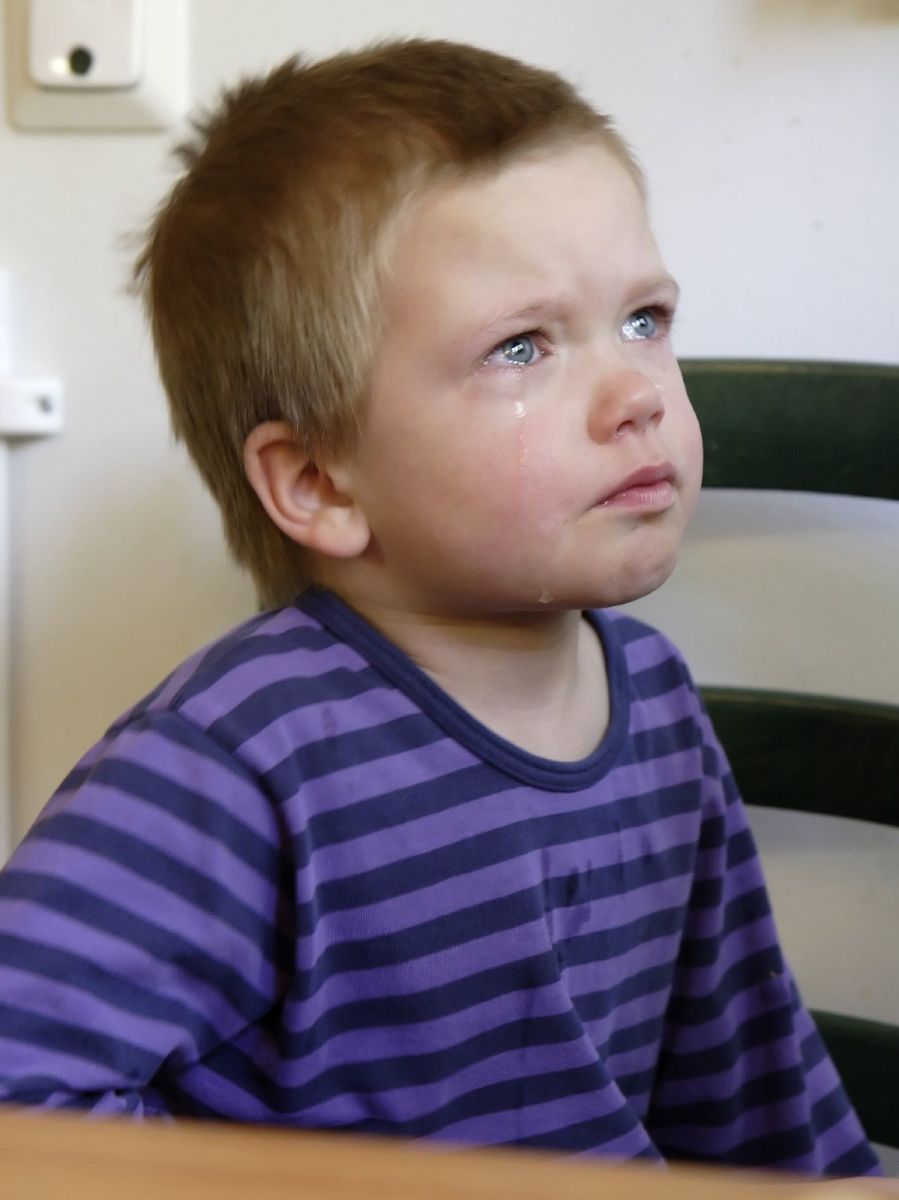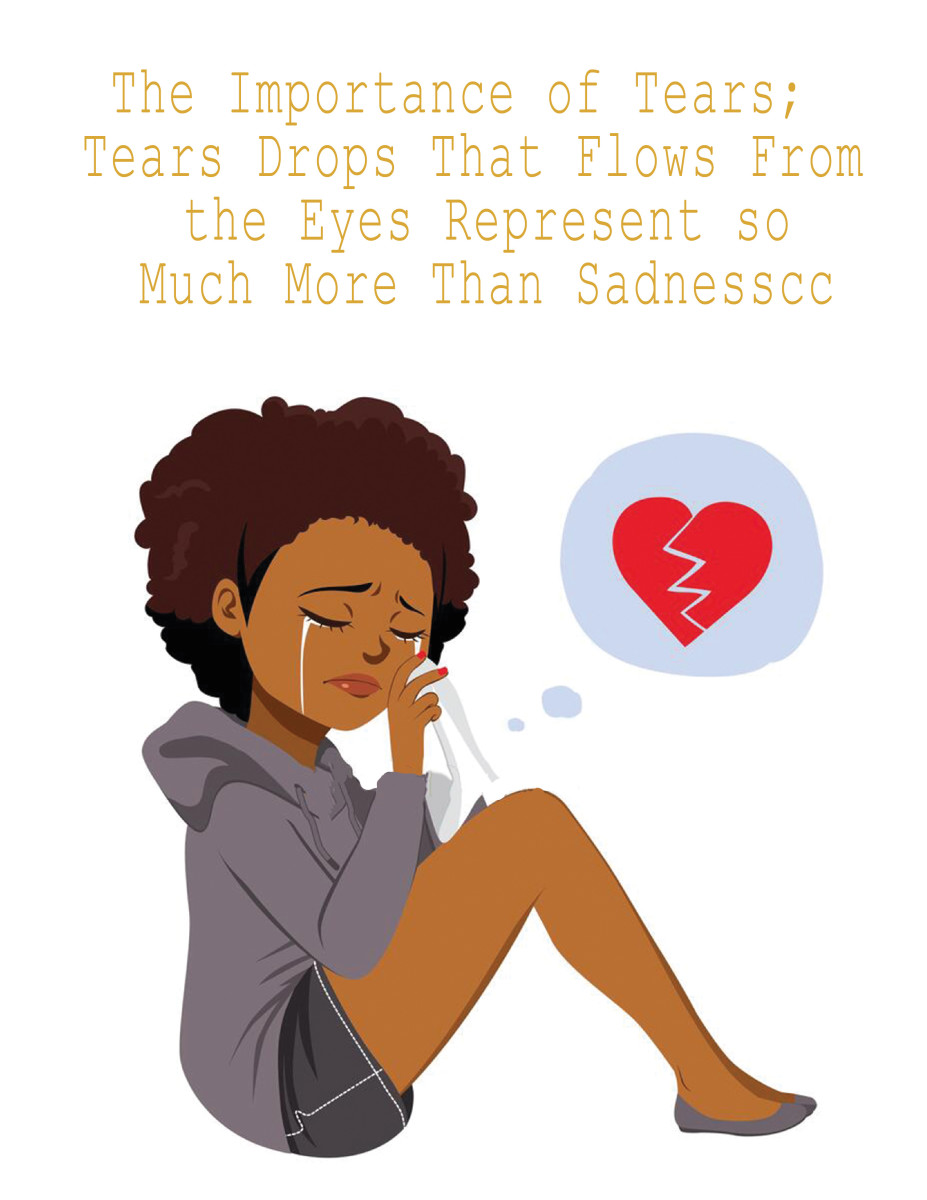When was the last time tears rolled down your cheeks?

The Begining
One of the most common factors that all of us share, no matter what we are and where we are, no matter what mood we are in and what circumstances we live in…..for every phase and occasion it’s common and that is ‘Crying’. During our childhood, tears used to trickle down over our cheeks time and again. Now recall of those moments, we would be left with a surprise…. why was that weeping for? When we grew little further, the spats between brothers or sisters or with friends cause the same salty droplets to wet our cheeks. Little further, we used to cry when our demands were not fulfilled. Then sometimes disobedience of the children, sometimes disloyalty of the dear ones and sometimes over one or the other problems tears do flow out of the eyes.
Thus, our lives have patches of crying and weeping so intense and wide that we feel an incessant relation with tears. Who forgets the tears of joy? Upon realizing a dream, on getting success and over a marriage? Who dares to ignore the tears of grief when leaving home for a stay away from home and sometimes owing to different pains?. This phenomenon is ought to be an honest display of grief or sorrow else the general perception would be simply negative one, as ‘crocodile tears’.
Crying is something unique, the eyes that help see the whole world has invisible water bags within, we don’t exactly know their length and breadth, but when it comes to weeping the water droplets flow with such an ease from the eyes as if there is a small water stream behind. This phenomenon demands a reflection over its flip side. Do you think weeping is a form of weakness? Or is it a reflection of a failure or is it symbolizes a virtually dead person? Is it a healthy sign? Or it’s a sign of some sort of disease?

The Science of Tears
Tears have some significant reasons behind, they are as varied as our emotions and feelings are. Not all tears are same, they vary according to variation in the causes. I would like to present here the research work of Rose-Lynn Fisher and Joseph Stromberg:
(1) One day Rose-Lynn Fisher wondered if her tears of grief would look different compared to her tears of joy, so she began to explore them up close under a microscope. She studied 100 different tears and found that basal tears (the ones that our body produces to lubricate our eyes) are drastically different from the tears that happen when we are chopping onions. The tears that come about from hard laughter aren’t even close to the tears of sorrow. Like a drop of ocean water each tiny teardrop carries a microcosm of human experience. Her project is called The Topography of Tears.
Joseph Stromberg of the Smithsonian's College of Arts and Sciences explained that there are three major types of tears: basal, reflex, and psychic (triggered by emotions). All tears contain organic substances, including oils, antibodies, and enzymes and are suspended in salt water. Different types of tears have distinct molecules. Emotional tears have protein-based hormones, including the neurotransmitter leucine enkephalin, which is a natural painkiller that is released when we are stressed. Plus, the tears seen under the microscope are crystallized salt and can lead to different shapes and forms. So even psychic tears with the same chemical composition can look very different. Fisher said, “There are so many variables—there’s the chemistry, the viscosity, the setting, the evaporation rate and the settings of the microscope.” (source: lifebuzz.com)
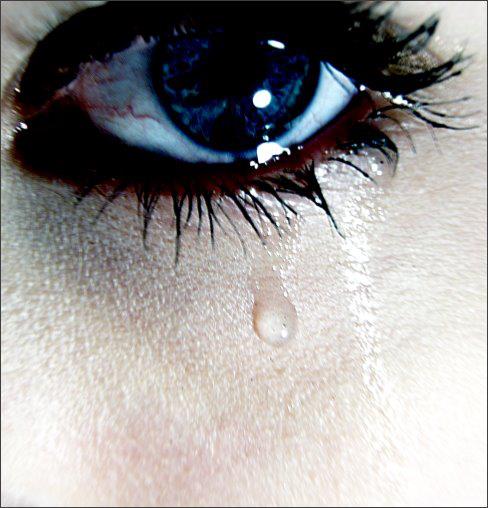
Every Drop Has a Reason
One thing is sure, that the tears convey something ‘constructive’ silently. They simply compel us to respond, no matter if it’s pertaining to us or others. We have responded to our children's demand just because of their crying. And sometimes the tears in other's eyes simply made us weep. There are certain instances where one has to heed to the message that they convey:
(1) Parent’s weeping due to the disobedience of their children are a cause of concern. It has to be understood with an intense feeling, as these were the children for whom the parent spent their days and nights with tiring eyes and void of sleep. What went wrong that the children are a pain? Why can’t the children replace the grief with comfort and ease?
(2) The wife’s tear is what? A shame on husband or a blot on the circumstances. Is it an indication of dearth of caring and loving attitude of husband. Or the lack of mutual aid? No matter what, it all rests on part of a husband to wipe out the tears. His kind gesture towards the better half is an indication of the greatness of his mother and magnanimity of his sister in whose company he learned how to treat a woman.
(3) If an undue ire of parents caused their children to cry, it’s a matter of grievous concern. Don’t let them shed tears as it might suggest to the child that his parents are a cause of pain but not comfort.
(4) There is also a collective gesture of shedding tears. The poverty and exploitation of the downtrodden have caused many to spend their nights and days with tearful eyes. The wistful eyes always look at some savior who can wipe out the tears.
In view of the sufferings of humans, hardships and calamities, humane souls do shed their tears out of love of humanity.
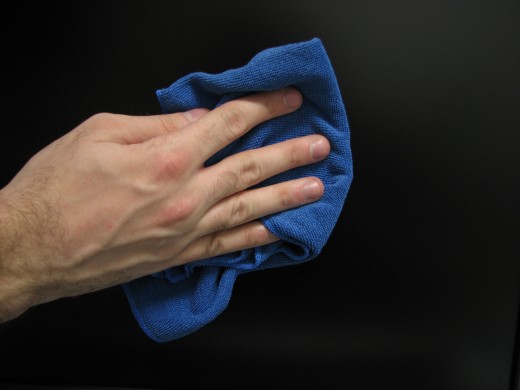
Wipe Out Tears
Tears do trickle down, there is absolutely no stopping, some have been made to flow, some owing to love and affection, some due to oppression and a few due to concerns do come out. Crying and weeping is a phenomenon, natural and instant. Same as flowing of words from the mouth and flowing of thoughts from the mind. Though we have no command over the water droplets that flows down, but yes, there are certain occasion that needs our attention and with a little care we can be successful in turning the weeping eyes to the glittering ones.
(1) Let not be a cause rather a solace, the tears in the eyes of dear ones suggest that we are far from their emotions and feelings, the proximity, by means of helping hands, with the persons in grief will surprisingly reduce their pain.
(2) Let not be oppressive, but an emancipator, the exploitation and violation of due rights too cause tremendous pain. The lives void of basic needs depends on the mercy of other’s. The positive response not only make them happy, but provide with a reliable source of comfort for their rest of the life.
(3) Let not be insensitive rather compassionate, there are sensitive humans, every act exerts a kind of impact on their behavior and thinking. Most of the time such people succumb to the external pressure as a result a psychological aspect dictate their behavior and then the situation goes beyond their control. Such people need sympathy, that’s all, for which we need to have empathy.
(4) Let not our heart be callous rather sympathetic. Some needs counseling as an unknown fear make them quite uncomfortable with both known and unknown persons alike.
(5) Let not be mute spectator, but a just voice. The collective conscience always reflects the values that rule the society. If the values are noble, collective conscience has to be equally noble and so is the overall attitude of the people dwelling therein. In spite of the majority of the privileged ones if the fate of underprivileged minorities does not change, then there spread a silent mischief, crying eyes will be more in numbers than the hands that wipe out.
how do you articulate trickling down of tears?

The Noble Tears
In most of the cultures crying is a socially acceptable, preferably for women and children but not for men. If it’s due to grief and frustration, we can have a demarcation of who is suitable for what? But when it comes to recognition of certain realities, the shedding of tears can’t be specified. There can be absolutely no distinction of men, women and children. This is where one has the edge of developing spiritually and inculcating high concerns for the humanity.
Few therapies have come up that suggest the beneficial aspects of crying. One such is a 'Re-Evaluation Counseling' which teaches that crying is beneficial to health and mental well-being and advocates for its positive encouragement. Medically it has been proven that tears act as painkillers.
We do agree with the fact the weeping should be a private matter, crying publicly is simply aspersion if it is not a matter pertaining to death or heavy loss.
One thing we all feel, that a sensible person never weeps over petty things, neither in fornt of the strangers nor enemies. But when there is the camaraderie of the good souls, when a caring and loving friend accompanies us, we do cry, if the personal condition warrants so.
Verily, this act needs someone very close to heart, who can be more close to our heart than God? So the tears can be termed as noble if they are being shed out of love and fear of God. Most of us have an experience of our own, but this needs to be practiced without any out-side pressure as God deserves more than anyone else, isn’t it?
The causes behind shedding tears have been summarized as anger, joy, fear, laughter, frustration, remorse, intense emotions, etc. Just think of the attitudes adopted in view of these factors and then clubbed them with the whole Divine Persona of God; you will surely find numerous ways of shedding tears for the sake of the Almighty.
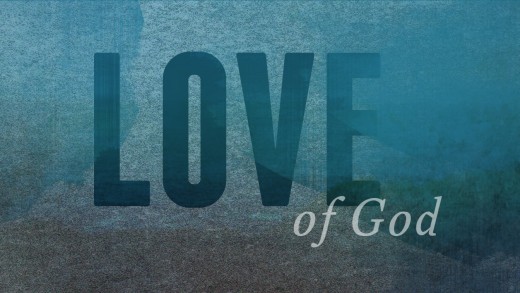
Tears out of Love of God
Eyes should shed tears in view of the blessings of God, they are so numerous and vast. The expanse of which knows no bound. Right from the incoming and outgoing breaths to day to today affairs, they are simply immeasurable. Had there been no Mercy of God, we would have certainly failed in our own calculations and assignments. Let the tears flow. No one should know this. It’s a matter between you and your God. Just imagine He is staring at you and you are simply weeping and weeping. It exerts a lively impact on your heart and mental condition that with those insignificant tears you have tried to ascertain the blessings of God. There is absolutely no wealth, nothing in our possession that can be regarded as a justifiable substitute for the abundant mercy of God. This sense of realization help behaves well with the bounties of God, it corrects the attitude. A person, who has shed his tears by looking at a tree with a sense of realization, will neither unnecessary cut the tree nor adopts any attitude that is detrimental to its existence.

Tears out of Fear of God
We do have a vibrant concept of God that He is Omnipresent and has power over all things. This ultimately implies that one should fear Him. He is bound to take account of every single deed. Since the human is to err, the tears must flow as a compensation of this weakness. In view of His extreme power, one should fear as his actions are far below his God's expectations. His mishandling of others has caused pain. Sometimes the violation of rights, sometimes misconduct, sometimes far below levels of worship has put him below the expectations. This must increase the miserable condition of the heart; it should feel the burden of sins, whereas eyes replicate the same with tears.
When the tears flow down in an isolated position it manifest the deep-rooted relationship with the God. Out of fear and love the eyes remain tearful. Let this be one of the most common forms of relationship with the God. It communicates that you have realized the existence of God. You feel that God is continuously watching you. It suggests that you have a clear conception of God that He is merciful and kind, because no one weeps this way in front of a stranger or a cruel person. It gives a kind of confidence that you will be right back on the track of His obedience. Sometimes you get the feelings of washing away of sins and sometimes you feel a pure inner self within.
When was the last time…….
As the tears, physically cleanse the eyes from dust and other disturbing particles, when they trickle down out of fear and love of God, they get articulated with a sound spiritual message, that they have cleansed unwanted love of the world and increased the proximity with the God. Therefore, at times, we should ask ourselves and sometimes to our near and dear ones – when was the last time tears rolled down your cheeks?
© 2014 – Muhammad Abdullah Javed ( m abdullah javed)


![Smelly Butt Traitor Paranoia Taking Advantage of Reversed Caress [Explicit]](https://m.media-amazon.com/images/I/41i-bZvOMJL._SL160_.jpg)

